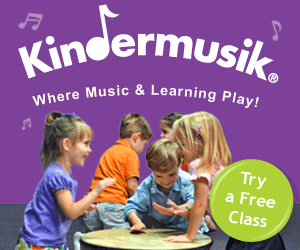Other than the recorder I learned to play in 4th grade I don’t know how to play any other musical instrument. It’s sad really, because I truly love music. I love to sing. Guitar would have been a great thing to learn, but I was not very motivated at self guided learning. It would have been great to have instruction of some kind in the field of music when I was little to help me appreciate it more.
It’s even been said, and studied, that learning to play music can enhance a child’s emotional and intellectual development.
Studies after studies are showing that learning music can make kids smart. When your child learns to play a musical instrument, not only does he learn how to make tunes, but he also enhances other capabilities of his brain as well:
- A 10 year study involving 25,000 students show that music-making improves test scores in standardized tests, as well as in reading proficiency exams (Source: James Catterall, UCLA, 1997).
- High school music students score higher on the math and verbal portion of SAT, compared to their peers (Profile of SAT and Achievement Test Takers, The College Board, compiled by Music Educators Conference, 2001).
- The IQ’s of young students who had nine months of weekly training in piano or voice rose nearly three points more than their untrained peers (Study by E. Glenn Schellenberg, of the University of Toronto at Mississauga, 2004.)
- Piano students can understand mathematical and scientific concepts more readily. Children who received piano training performed 34 percent higher on tests measuring proportional reasoning – ratios, fractions, proportions, and thinking in space and time (Neurological Research, 1997).
- Pattern recognition and mental representation scores improved significantly in students who were given a 3-year piano instruction (Dr. Eugenia Costa-Giomi study presented at the meeting of the Music Educators National Conference, Phoenix, AZ, 1998).
- Music students received more academic honors and awards than non-music students. These music students also have more A and B grades compared to non-music students (National Educational Longitudinal Study of 1988 First Follow-Up, U.S. Department of Education).
- More music majors who applied for medical school were admitted compared to those in other majors including English, biology, chemistry and math. (“The Comparative Academic Abilites of Students in Education and in Other Areas of a Multi-focus University,” Peter H. Wood, ERIC Document No. ED327480; “The Case for Music in Schools”, Phi Delta Kappan, 1994)
- Musical training before age 7 is linked with more white matter in the corpus callosum part of the brain, as well as better performance on visual sensorimotor synchronization tasks, according to a study conducted by scientists from Concordia University and the Montreal Neurological Institute Hospital at McGill University.
- A study has found that music lessons for kids make their minds sharper when they grow older. According to study researcher Brenda Hanna-Pladdy, a neurologist at the Emory University School of Medicine,”Musical activity throughout life may serve as a challenging cognitive exercise, making your brain fitter and more capable of accommodating the challenges of aging. Since studying an instrument requires years of practice and learning, it may create alternate connections in the brain that could compensate for cognitive declines as we get older.”
- Another research from Northwestern University conclude that music lessons taken in childhood could benefit your kid’s brain later in life, even if he does not continue taking lessons into adulthood. The researchers have found that brain responses to speech are faster among older adults who took music lessons even if they have not taken music lessons in a long time. The benefits seem to be stronger the longer a person took music lessons as a child.
Source: Raise Smart Kid, The Effect Of Music On Children’s Intelligence
Traditional music lessons, though very informative, may not play well to the strengths and imaginations of young children. An environment which encourages exploration, experimentation and playfulness with music may help to garner a child’s love of playing instruments of all kinds.
Kindermusik provides just such an environment. Right now for a limited time they are offering one free class.
- Kindermusik Music Learning Class
- Come See Why Over 2 Million Families Choose Kindermusik!
- Try a Free Class!
Firstly, I’m a mom and wife. Professionally, IT consulting is my job and blogging is the outlet for my passions. I write about things that affect the everyday life of a stay-at-home parent or any parent for that matter such as parenting, relationships, discipline, the media, product reviews, giveaways, social media, food, cooking, gardening and anything else that might come my way.


